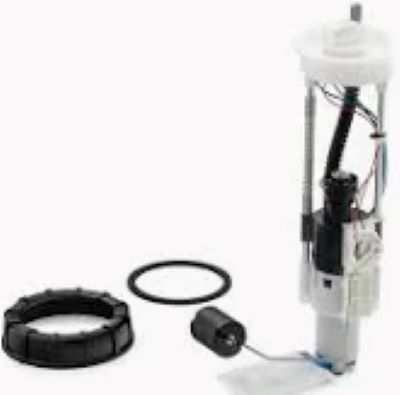To manage these demands, Fuel Pumps in high-performance engines deliver higher fuel flow rates and provide a constant pressure to ensure that the engine gets enough support when working at its most demanding. Where standard fuel pumps might max out at 120 LPH, High Performance Fuel Pumps are designed to support flow rates of up to or over 255 liters per hour. This increased flow capacity makes it possible to deliver a much richer fuel mixture necessary for turbocharged or supercharged engines that have an heavier demand on fuel in order to combust properly and make adequate power.
High-performance Fuel Pumps are designed to meet the harmonies of these demands in that they bring about increased fuel pressure stability. Typical fuel systems run at 30–70 psi, but upgraded pumps can hit over 100 psi for modified engines. This resilience under high pressure helps assure transfer of fuel to the injectors--ensuring there's no issues with, say, running out of fuel leading to lean conditions (which can damage engine parts). This pressure is critical in a race or high-stress driving environment where stable fuel delivery impacts directly on power and performance.
Fuel Pumps meant for high-grade execution are likewise joined by heat impenetrable components. The additional fuel flow flows generates extra heat, thus these pumps are designed to deal with higher temperatures without affecting performance. They also employ durable materials like anodized aluminum and reinforced seals that are rated for higher operating temperatures. Whereas high-performance versions manage 120°C to 150°C, you are lucky if the standard type can merely reach that temperature. The increased heat tolerance is important because pump overheating can result in a loss of power as the motor kicks out and creates situations where pumps might not be able to build pressure.

Furthermore, large-flow fuel filters are frequently combined with the high-performance Fuel Pumps for better management of greater capacity of fuel flow while avoiding clogs. These filters also feature larger filter surfaces and use finer materials to catch particles while flow rates increase, which in return keeps the system clean even under higher demand. Such filters can prolong the lifespan of pumps in high-performance configurations by as much as 20%, reducing wear and keeping debris from entering internal components.
High-performance pumps also benefit from the use of advanced electronics and contribute to efficient fuel management. That precision is achieved when high output pumps come equipped with an electronic fuel management system that, in real-time, can monitor and adjust fuel flow so it corresponds exactly to what the engine needs. This technology helps in eliminating fuel wastage and prevents the vehicle from being over-weight, which results in better performance as well as saves on fuel. Performance testing has shown that engines equipped with pumps managed electronically are able to provide 10-15% better fuel efficiency at high loads, versus those without this feature.
A high-performance Fuel Pump provides proper fuel flow, pressure stability and heat resistance for modified engines operating under extreme conditions. These pumps harness advanced materials, filtration and real-time fuel delivery efficiencies to maintain peak performance with maximum efficiency. The added features which push them into must-have territory for enthusiasts and professionals running their engines at or near the limit.